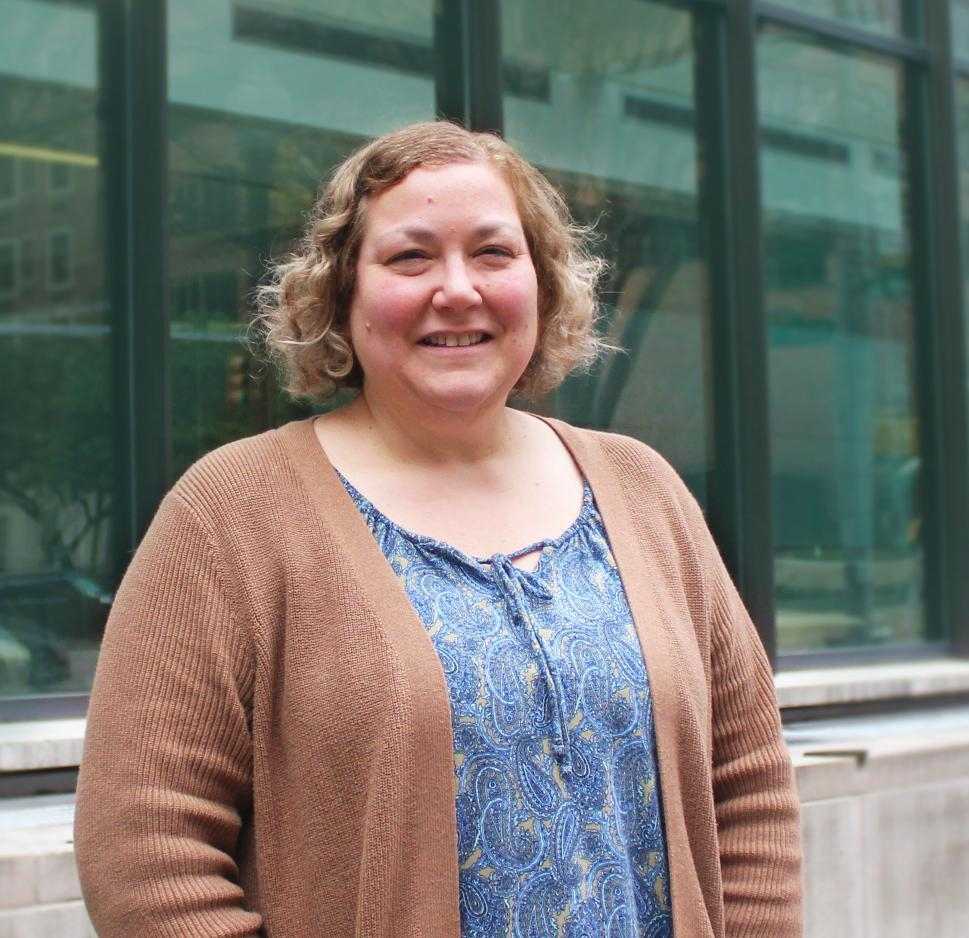 By Christina Crowe
By Christina Crowe
Carlene Zindl, Ph.D., joins the Department of Pathology as an Assistant Professor in the Division of Molecular and Cellular Pathology after having worked for years as a researcher and scientist in the Division of Anatomic Pathology. Her position is effective January 1.
Zindl studied mathematics and biology as an undergraduate student in New York before pursuing a Ph.D. in Immunology from Washington University, St. Louis. In 2003 she moved to Birmingham to undertake a postdoctoral fellowship in the UAB Department of Microbiology, first under David Chaplin, M.D., Ph.D., Professor Emeritus. When completed, Zindl then began a second fellowship in 2009 working with Casey Weaver, M.D., Leonard H. Robinson Endowed Chair, Pathology, in the Division of Anatomic Pathology. At its completion, Zindl stayed on as a research associate, then scientist, in Weaver’s lab, from 2014 to her present promotion.
In that role Zindl, has collaborated with Weaver on numerous publications of note on their work on immune cells and their roles in defending the gut from dangerous bacteria. In a study published in the journal Immunity, Zindl and Weaver, along with Robin Hatton, Ph.D., Associate Professor, illustrated how two types of immune cells — one a part of the innate immune system and the other a part of the adaptive immune system — play distinct and indispensable roles to defend that barrier.
Additionally, in late 2022, Zindl and Weaver were named awardees of a Method to Extend Research in Time (MERIT) grant from the National Institute of Allergy and Infectious Diseases as a continuation of an R01 award, “Coordination of Innate and Adaptive Immunity in Intestinal Barrier Disease.” The award follows on the R01 funded in early 2022 by NIAID.
Zindl says her overarching career goal is to become an independent investigator exploring the interplay between T cells and intestinal epithelial cells (IECs) in intestinal barrier defense at homeostasis and during enteric infection. She became interested in IL-22 biology when she discovered that neutrophils produce IL-22 in response to chemical damage in the intestines and during an animal model of asthma, she says. A 2018 article with collaborators in the department published in the journal PNAS describing these findings has been cited in over 200 articles.
Working with Dr. Weaver at UAB, Zindl became interested in when and where innate and adaptive cells make IL-22 for host defense in the intestines. Her research published in Immunity (2022) identified a unique role for IL-22–producing T cells in protection of the colonic crypts during Citrobacter rodentium (C.r) infection. Currently, she is writing a manuscript in which her team identified a specialized subset of colonocytes that resides in the mid-distal colon, is pre-dominantly targeted by C.r, and receives T cell-derived IL-22 signals for host protection. In addition, they found that MHCII on IECs is required for sustained T cell-derived IL-22 protection of the crypts. Her future interests include identifying the mechanism(s) by which IL-22–producing T cells protect the intestinal barrier and to further elucidate the role of major histocompatability complex class II (MHCII) molecules on intestinal epithelial cells (IECs) for host protection during enteric infection.
Please join us in congratulating Dr. Zindl on her promotion to assistant professor.